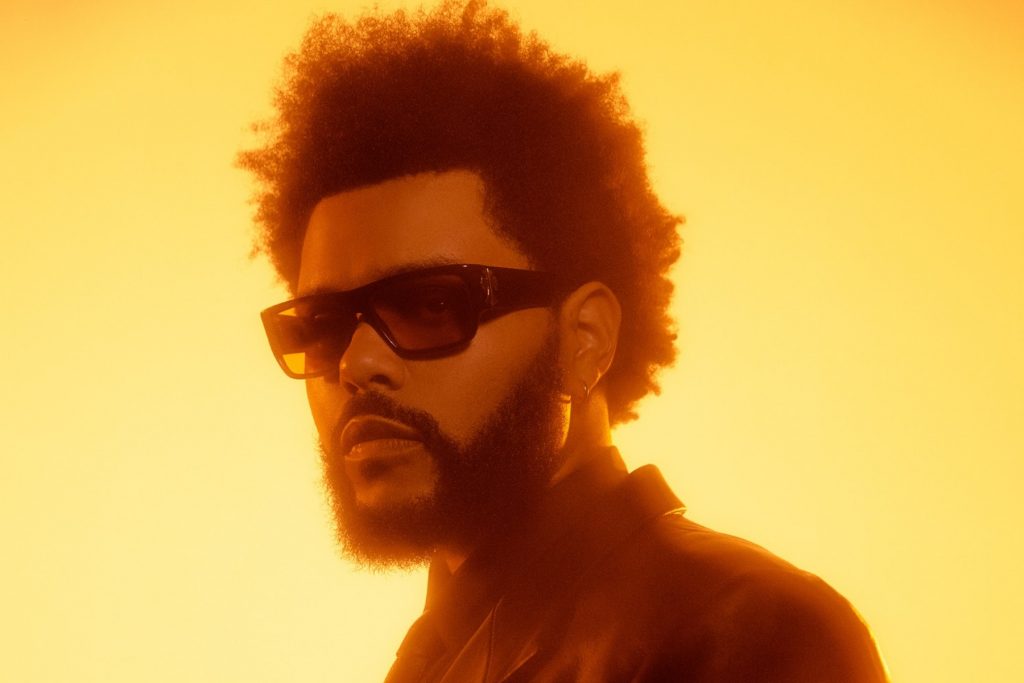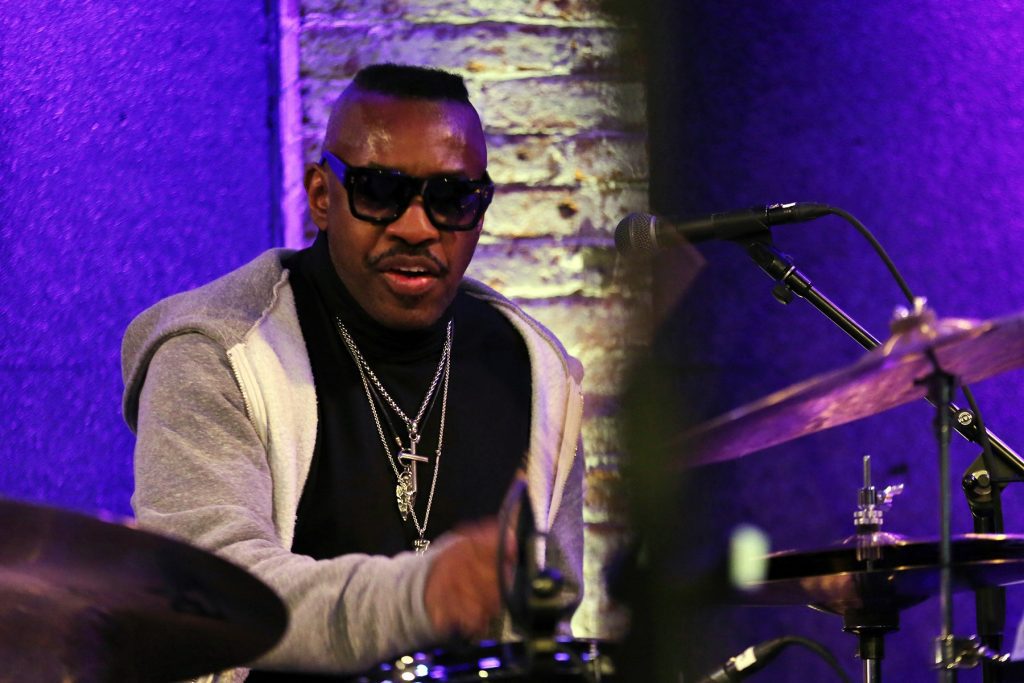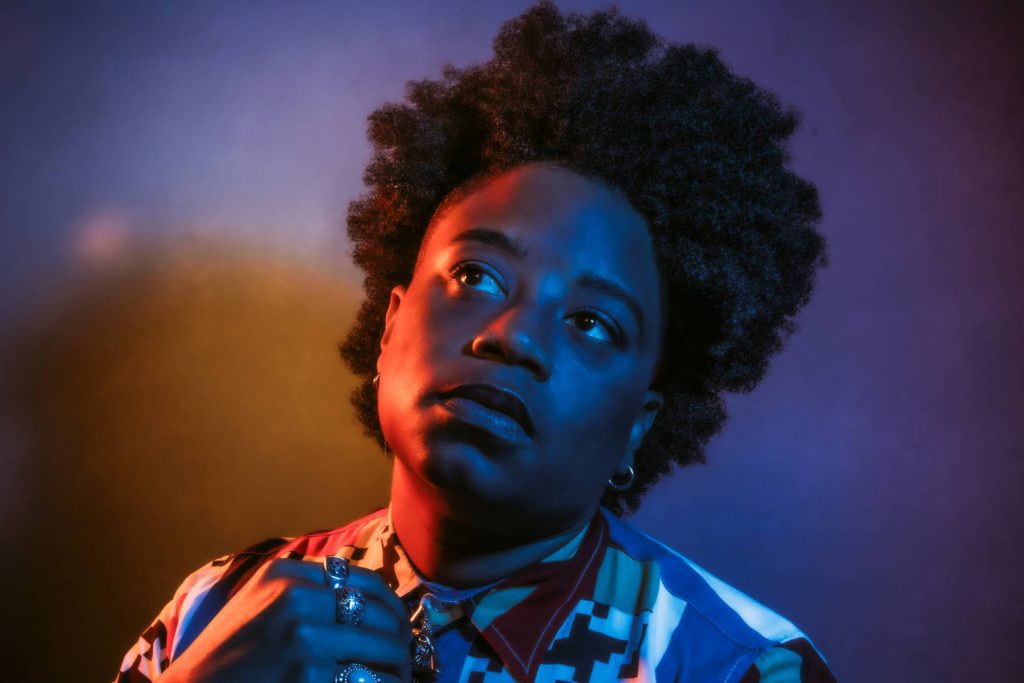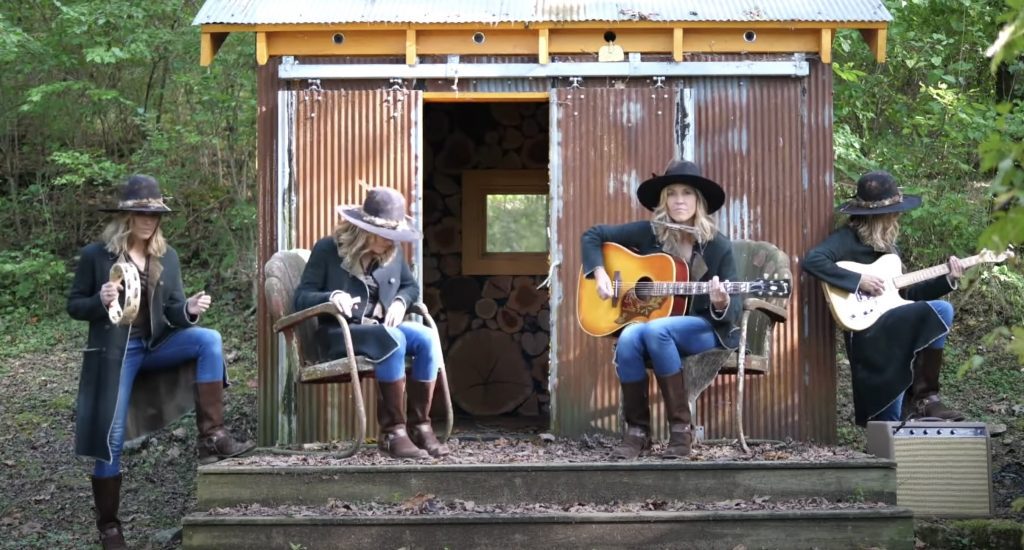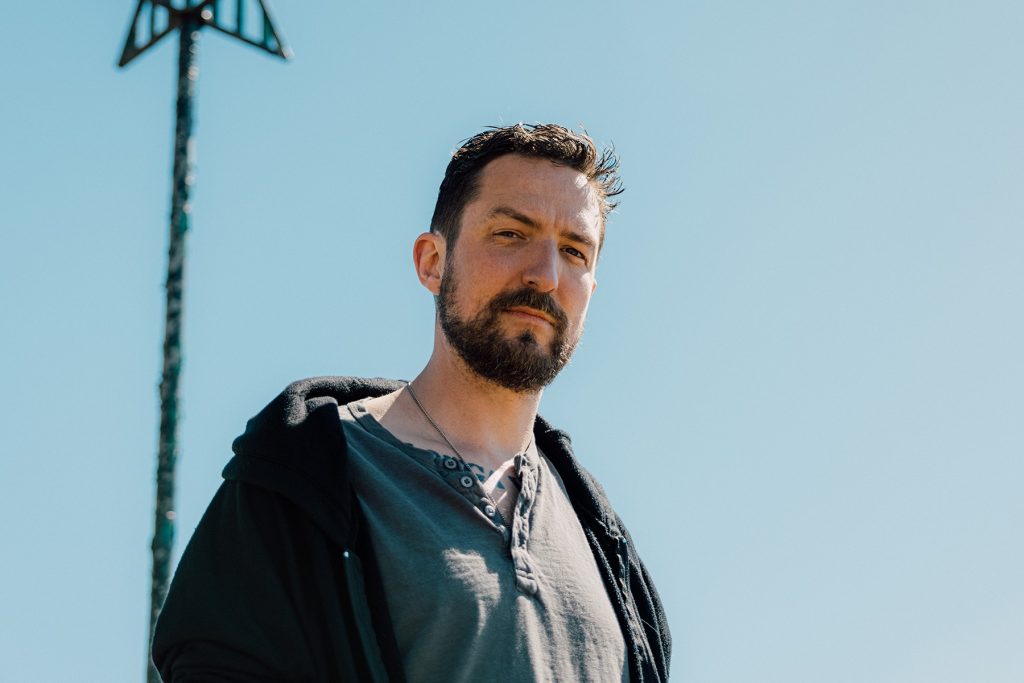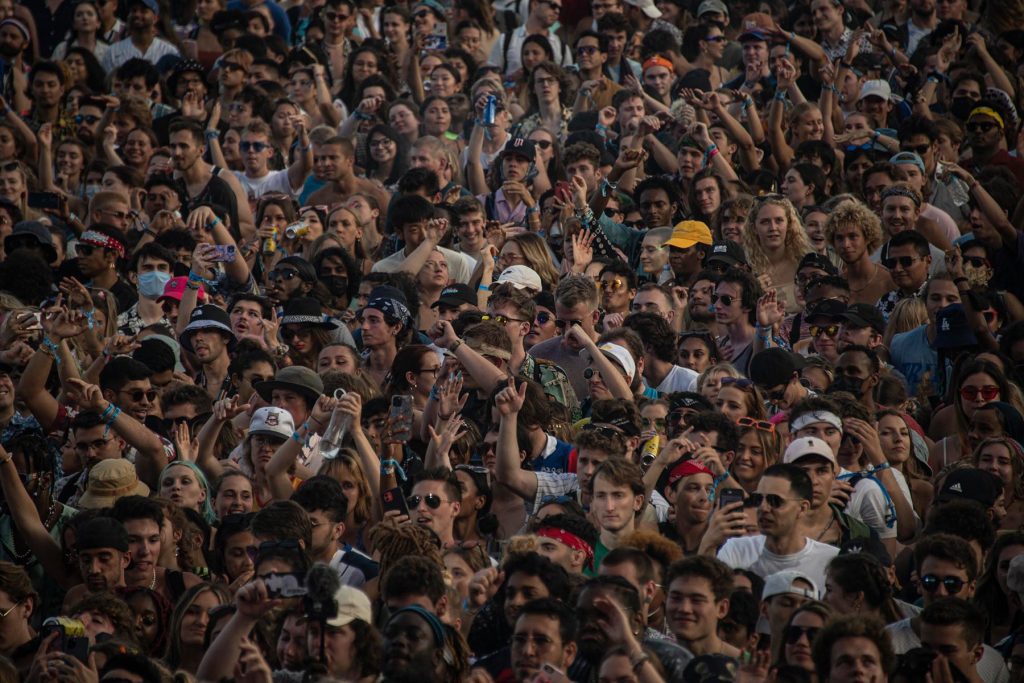
As Delta Variant Spreads, Artists and Venues Scramble to Keep Concerts Safe
Dayna Frank didn’t think it would come to this. “Never in the last six months did I think we would be looking at a vaccination or test mandate,” says the president and CEO of First Avenue, the famed Minneapolis, Minnesota, music venue. “Never, ever thought we would do that.”
But last week, as troubling news reports circulated about the highly transmissible Delta variant of the virus that flattened the live music industry last year, Frank thought again. Her club announced on August 2nd that, effective immediately, all attendees will be required to provide proof of full Covid-19 vaccination or negative test results before walking in the door.
As the Delta variant surges across the U.S., the hard-won and still very tentative recovery of the live music business has been threatened once more. Major acts including the Foo Fighters and Fall Out Boy have been forced to cancel or postpone performances due to positive test results within their teams; in Santa Cruz County, California, an indoor concert by a Grateful Dead tribute band was linked to a Covid outbreak. Meanwhile, Republican politicians in many states are working to ban the mask and vaccine mandates that could keep people safe and fringe voices like Eric Clapton have made stubbornly ignorant statements refusing to play venues that require vaccines.
blogherads.adq.push(function () {
blogherads
.defineSlot( ‘medrec’, ‘gpt-dsk-tab-article-inbody1-uid0’ )
.setTargeting( ‘pos’, [“mid-article”,”mid”,”in-article1″,”mid-article1″] )
.setSubAdUnitPath(“music//article//inbody1”)
.addSize([[300,250],[620,350],[2,2],[3,3],[2,4],[4,2]])
;
});
This week, New York City became the first major locality in the country to require proof of vaccination for indoor activities including concerts. “This is the whole ballgame, everyone,” New York Mayor Bill de Blasio said at the August 3rd press conference announcing the new policy. “We will fight the Delta variant, and we will ultimately beat Covid.” President Biden has called for other cities and states to follow New York’s lead.
For now, though, artists and venues in most of the country are on their own to ensure the safety of performers, fans, and staff at indoor shows — an added burden after more than a year out of work. In the past week, touring acts including Lucy Dacus, Jason Isbell, the Feelies, Orville Peck, and many others have announced vaccine and/or mask mandates for upcoming shows. Among the stricter policies is the one that Michelle Zauner, a.k.a. Japanese Breakfast, announced on August 2nd, requiring concert attendees to provide proof of vaccination or a recent negative test and also requiring masks “at all times except when eating or drinking.” (This lines up with the most recent CDC guidance, which recommends that even fully vaccinated people wear a mask “in public indoor settings in areas of substantial or high transmission,” which would include concerts in much of the U.S.)
“We’ve always followed the science,” says Frank, who notes that vaccines and masks have been required for all of First Avenue’s 450 employees since February. “The initial findings of the vaccine were, you couldn’t get it, you couldn’t transmit it. That seemed pretty magical, and that’s what we went on… It became clear that vaccinated people were still getting [Covid] and could transmit, and that changed the game.”
Singer-songwriter Sarah Beth Tomberlin, who performs as Tomberlin, is one of the many artists who’s had to adapt to rapidly shifting circumstances. The sold-out show she played at the 250-capacity Ridgewood, Queens, club TV Eye on July 30th was her first public performance since November 2019; she’d booked that date months ago, hoping to support a small local venue that opened shortly before the pandemic. “When we announced that show, the Delta variant wasn’t something we were concerned about,” she says. “But as it got closer, I started talking to my manager, and I was like, ‘So….Can we make sure this is an all-vax show?’”
blogherads.adq.push(function () {
blogherads
.defineSlot( ‘medrec’, ‘gpt-dsk-tab-article-inbody2-uid1’ )
.setTargeting( ‘pos’, [“mid-article2″,”mid”,”in-article2″,”mid-article”] )
.setSubAdUnitPath(“music//article//inbody2”)
.addSize([[300,250],[300,251],[620,350],[2,4],[4,2],[3,3]])
.setLazyLoadMultiplier(2)
;
});
Tomberlin says that only about five fans asked for ticket refunds after she announced the vaccine requirement for her TV Eye gig: “To me, that was a good sign.” On the night of the show, she propped open the venue’s back door to increase airflow and made sure that she and her bandmates wore masks when they weren’t onstage. She was pleased to see that “70 or 75 percent of the crowd, maybe more” was also masked, even though she hadn’t made that a requirement. The next night, when she opened for Lucy Dacus at a vax-only show at the larger Music Hall of Williamsburg, she saw the same thing: a masked, fully vaccinated crowd trying to do the right thing. “I was looking at a picture again today, like, ‘Was that real, that many people in a room?’ Everyone’s trying really hard.”
Both of those shows, it’s worth noting, took place days before New York announced its policy on vaccines at indoor events. “It is strange for the artists or their managers to have to be the one to say, ‘Wow, are we going to be a step ahead of this?’” Tomberlin says. “It wasn’t being asked of us at the time. It was just kind of like, ‘Why don’t we be the pioneers of common sense?’”
Tomberlin says the dangers posed by the Delta variant are a major subject of discussion in her peer group, many of whom are just now resuming the long-postponed touring plans that their livelihoods depend on. “It’s a really scary time for everybody,” she adds. “None of us have been working. People need the money. But we also can’t contribute to people not being safe, and we don’t want to be unsafe.”
Dr. David Ghilarducci — the deputy health officer in California’s Santa Cruz County, site of the Grateful Shred outbreak — expects vaccine requirements to become the norm at venues throughout much of the country soon. “The businesses want to provide a service that is safe,” he says. “They see it from a business angle, and also as a moral and health issue. Verifying that the entire group in there is vaccinated will probably attract more business. Personally, I would choose the venue that had that rule over one that didn’t have that rule.”
Keeping indoor shows safe will be substantially harder in the dozen-plus states that now prohibit business owners from requiring their customers to show proof of vaccination, thanks to the efforts of right-wing politicians like Florida Governor Ron DeSantis. That’s a major issue for nationally touring acts who don’t want to perform for unvaccinated crowds, and for venue owners like Tom DeGeorge, owner of the 400-capacity Crowbar club in Tampa.
blogherads.adq.push(function () {
blogherads
.defineSlot( ‘medrec’, ‘gpt-dsk-tab-inbodyX-uid2’ )
.setTargeting( ‘pos’, [“mid”,”mid-articleX”,”in-articleX”,”mid-article”] )
.setSubAdUnitPath(“music//article//inbodyX”)
.addSize([[300,250],[300,251],[3,3],[620,350]])
.setLazyLoadMultiplier(2)
;
});
“I haven’t had a touring artist since March of last year,” DeGeorge says. “Now that tours are starting to ramp up again, all of a sudden agents are coming to me saying, ‘Hey, listen, this band wants to come, but they want to know: Can you do vax checks at your place?’ And I’m having to tell them, ‘Legally, no, because my governor is telling me I’m not allowed to.’”
DeGeorge shuttered his venue early last year when the pandemic began and toughed it out through eight months without any state or federal relief funding before re-opening last fall for limited-capacity local shows with masks required. He’d very much like to get back to hosting sold-out shows by national acts, the way Crowbar was used to doing since it opened in 2006.
“When they closed us here in Florida, we were told that we were the most dangerous place on earth,” he says. “What I’m finding right now, when I see other places say that they are going to enforce proof of vaccination — after everything that I’ve been through, I’m going to be stuck in a situation where many artists will probably skip Florida if they don’t feel that it’s safe.”
That stings for small business owners who have persevered through this crisis. “This thing went on so long, and we’re all so depleted, and we’ve lost so much money,” DeGeorge adds. “Aside from my own personal beliefs, as a business owner, after what we’ve been put through, I deserve to be able to host 100 percent of the artists that are on tour right now that want to come to my state. To tell me that I cannot do that right now is probably another nail in the coffin for our smaller rooms around the country.”
Even in parts of the country where vaccine requirements remain legal, venue owners may feel limited in their ability to go further and require masks for audience members. “Policing masking in an environment where people are drinking is exceptionally difficult,” says First Avenue’s Frank. “Obviously, if Minneapolis/St. Paul puts in mask mandates, we will follow the law without a doubt. But it’s difficult when your business model is to get people in a room and serve them drinks.”
The hope, instead, is that the new vaccine policies will be enough to motivate reluctant members of the public to join the fight to drive down infection rates. “I just heard the story this morning, of a 24-year-old who wasn’t getting vaccinated,” Frank says. “Their friend was trying to convince him, showing him the data and the science, and the young man came back and said, ‘You know what? I have tickets to four shows at First Avenue in the fall. I’m just going to get vaccinated.’ That’s the result that we’re hoping for.”
blogherads.adq.push(function () {
blogherads
.defineSlot( ‘medrec’, ‘gpt-dsk-tab-inbodyX-uid3’ )
.setTargeting( ‘pos’, [“mid”,”mid-articleX”,”in-articleX”,”mid-article”] )
.setSubAdUnitPath(“music//article//inbodyX”)
.addSize([[300,250],[300,251],[3,3],[620,350]])
.setLazyLoadMultiplier(2)
;
});
Adam Weiner, whose Philadelphia rock band Low Cut Connie just announced a mask and vaccine requirement for its upcoming indoor shows, says he hasn’t been surprised by the turn the live industry is now taking. “We were offered a million things last fall that I didn’t take, because it seemed inevitable that there were going to be major spikes and a lot of problems,” he says. “If you follow the news, you could predict that this was where we would be.”
With no immediate end in sight to the pandemic, he’s trying to take the long view. “We’re going to have to learn how to put on live entertainment in the least-risky way,” he says. “For a long time, a lot of people in the industry were thinking, ‘Let’s just try to get to the all-clear, and then we’ll go back to what we were doing before.’ We’re not going to get to the all-clear…. But as an entertainer, I don’t think that means we can’t do our job. I don’t think it’s curtains for the live entertainment industry. We have to find new ways of doing things.”
In addition to masks and vaccines, that means rethinking his rollicking, high-energy approach to performing. “I’m not going to be physically touching [audience members],” Weiner adds. “I’m not going to be asking them to physically touch each other. But as a performer, I had to look at it and say, ‘Can I give people a magical experience even with these protocols?’ And I think I’m up to the task.”
Additional reporting by Brian Hiatt
